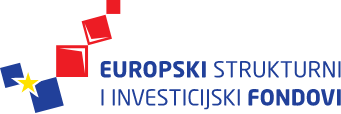Digital document management for digital transformation

The term “digital transformation” is ever-present in and very important for companies that aim to keep up with the latest business trends. Technological development affects both business and people, while investing in a digital workplace helps ensure business sustainability and growth.
In addition, businesses can use digital transformation as a competitive advantage, whereas digital document management helps employees become faster, more mobile and more productive, which means they are more successful in their work.
Why is digital documentation essentially a digital currency?
Marijan Nedić, IT Department Manager at Končar D&ST, said as part of the TIS webinar that it is important to have strong management support in the implementation of IT solutions such as a digital document management system because such solutions are not strictly related to the core business. After an EMC (Enterprise Content Management) system is implemented, its end users initially see no long-term benefit. In the beginning, it is just an additional task they need to complete.
Not a single organization exists that does not generate large amounts of documents in the course of its operations. While it may not be its core business, documents are always managed.
The benefits of such digital transformation and digital document management will not become apparent until later, when it becomes necessary to find certain documents relating to a project and track their changes, which is much easier and quicker using an organized ECM system. This is confirmed by the COVID-19 pandemic that highlighted the need for quicker and more mobile business operations.
After a certain period of use, the end users will have recognized the benefits of such organized system being part of digital transformation and will start suggesting system upgrades or extensions with new functionalities.
Končar D&ST opted for a so-called “smart-specialization” concept. They believe someone somewhere has already solved the problems they face, so it is easier to purchase a readymade ECM ECM (Enterprise Content Management) product and customize it than develop their own solution.
The main purpose of the Digital Document Management was to ensure that documents are managed in a centralized way from a single point, including a fully organized structure and tracking of document versions and changes, access privileges and monitoring, and all other components that are already embedded in modern ECM systems.
BPM (Business Process Management) functionalities were also required as part of the ECM system implementation process to allow for processes to be implemented in an organized and automated way. BPM allows organizations to manage their business processes including human interaction and/or multiple business systems. It helps managers define business rules applicable to the tasks within each process to facilitate the monitoring and measurement of company resources.
Marina Meštrović, Business Solutions Consultant, TIS




